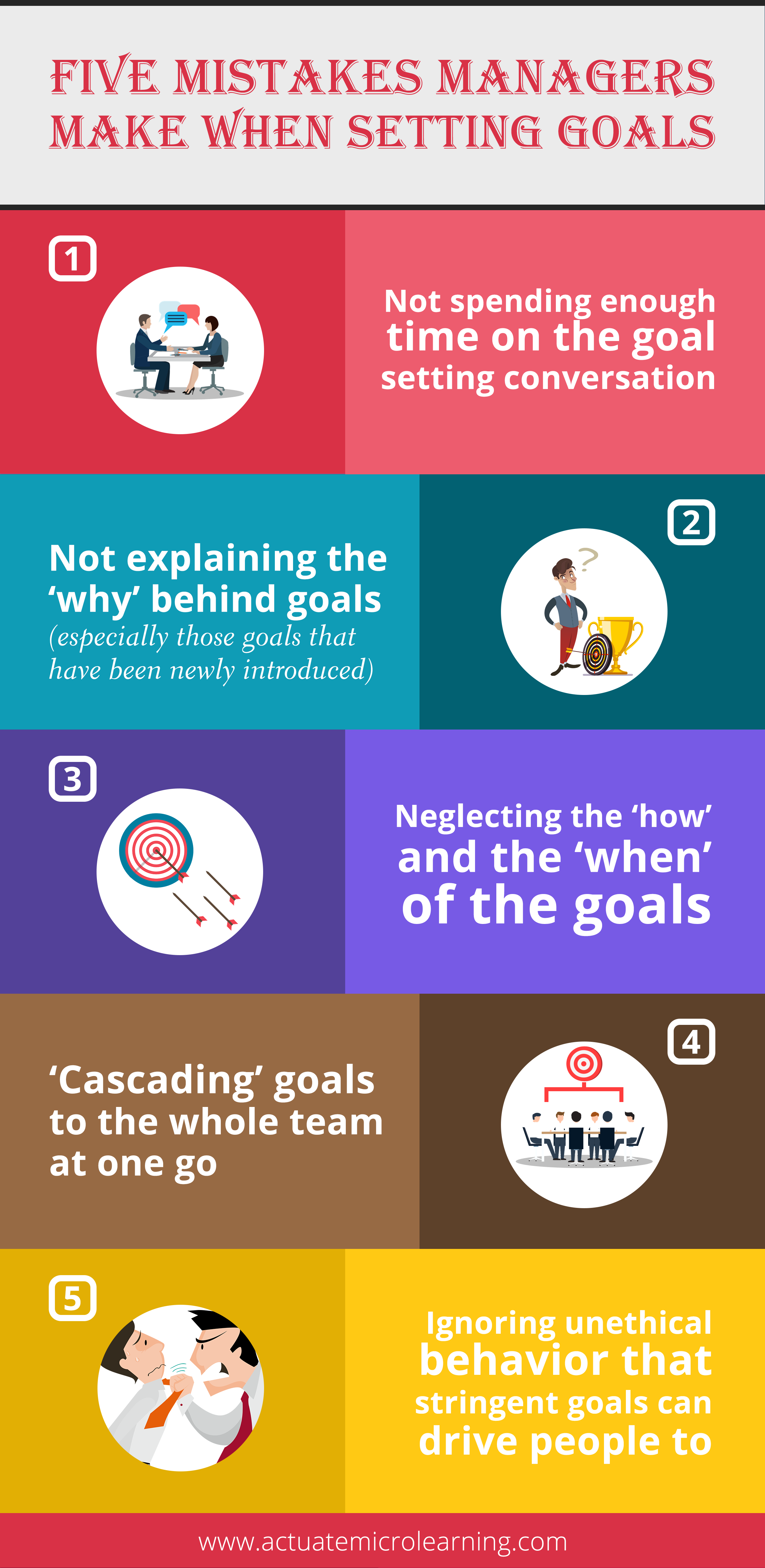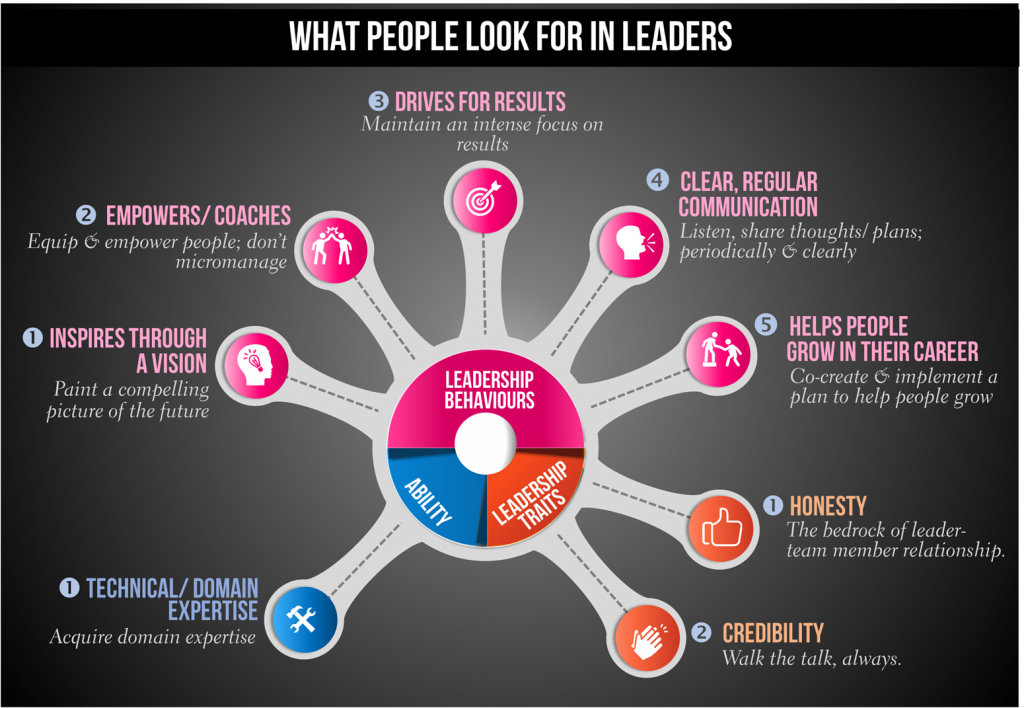
What are traits that people admire most in leaders?
It is an important question to consider. One with probable emotional implications as well.
Our own research into the topic brought forth some interesting inferences. Here’s where we’ll share these findings with you.
For convenience, our list of attributes that people look for in leaders can be divided into character traits and leadership behaviours. This could serve as a ready reckoner that could be used for self-evaluation every once in a while.
If research is to be trusted, we’d say it’s safe to assume that this is probably what your team members would find admirable in leadership figures too.
The traits most desired in leaders
1. Honesty:
It is what sociologists and communication experts term as ‘soaiturce credibility’.
If people are to trust in and follow a leader’s word, they must see the leader as being inherently honest and trustworthy. Leadership experts have found that honesty is universally, the most important trait of effective leaders in all walks of life, be they military generals or class monitors. Honesty reflects aspects of a strong moral compass and integrity of character.
Leaders build trust by nurturing truthfulness, forthrightness, and integrity – all positive and righteous attributes which demonstrate honesty. This trust is essential for developing subordinates who, fuelled by this trust, tend to remain committed to the leader’s vision and mission. Employees are most loyal and enthusiastic when they work in an environment governed by trust and the trustworthy; meaning, honesty is the bedrock on which effective leader-subordinate relationships are built.
On the flip side, lack of honesty seriously diminishes a leader’s ability to influence, inspire and by extension, lead. No one trusts such leaders with anything significant.
In the words of Carol Sawdye, vice chairman and CFO of PricewaterhouseCoopers, “Leadership means setting your moral compass in the direction you know is right, even if it’s difficult or unpopular.”
At the risk of spouting clichés, honesty IS indeed the best policy! It pays off in customer relations, community relations and for the world at large.
Ask Yourself: If your team were to maintain a running log of all your words and actions, how high/low would they rate you on honesty today?
2. Credibility
In leadership, credibility is everything.
If people don’t believe in the messenger, they won’t believe in the message. Numerous studied have concurred on the importance of the leader’s credibility in ensuring that the team buys into and follows the leader’s vision, mission and goals.
What exactly builds credibility?
In short, walking-the-talk. When you make promises, keep to them. If you expect people to do it, do it yourself too. If you make a rule, follow it yourself.
Model the behavior that you want your people to display, and you will build the kind of credibility that the most admired leaders have. And, needless to say, but such leaders are the ones whom people follow; who can inspire and get the best out of their people.
Ask Yourself: Would your team, or people who work closely with you, say that you walk the talk always?
The Behaviours Practiced by Leaders Most Admired by People
1. Inspires and motivates people through a vision
Harbingers of possibilities that did not exist before, the most admired leaders are driven by positive intent aligned with a higher purpose. Great leaders are able to articulate a shared vision for the team in a way that inspires others to follow. They offer a picture of a future that is so compelling that it makes coming to work every day exciting for their people.
Narayana Murthy, founder of the multibillion-dollar software and IT services firm Infosys, is an example of how a visionary leader proved to everyone that Indian companies were ready to compete with the best in the world.
A point to note: The vision that we speak of next, is not the vision for your personal life. Rather, we are referring to the vision that you have identified and shared with the team/ organisation that you lead.
Ask yourself: What is your vision for your team? Does everyone on your team believe in this vision and are motivated to work towards it?
2. Empowers people (Coaches; does not micro-manage)
The ‘hands-on’ manager, often simply a euphemism for a tyrant, who is constantly getting people to be on their toes, barking orders, demanding a gazillion MIS reports, doing daily team huddles, belittling those who fail, might have been considered (wrongly!) the epitome of a great leader, at some time in the past.
Truth be told, it rarely worked then and it rarely works now. Sure, you need to be hands-on with newcomers and those unskilled. So, if that is what your team is like, then by all means be hands-on. Just don’t be a tyrant, though.
The best leaders around are those that are known to equip and empower team members to achieve stretch goals. Research confirms what we might have known intuitively at some level: people perform best, when they handle stretch goals, but only if they are equipped with the requisite knowledge and skill sets to meet that goal.
The best leaders take it upon themselves to ensure that people are equipped, thus.
They also enable people to work with freedom and autonomy, while being available to help, should they be required. They display an inherent trust in people; leaders let people know they trust them, and people do their best to live up to this placed trust.
Leadership, based on an inherent trust in people is the antithesis of the control freak, micro-managing boss. It is one of the practices of leaders most admired by one and all.
Ask yourself: How would your team rate you on the following parameters?
- Your tendency to help them master their skills
- The amount of freedom that they have, to choose how they will work
- Your trust in them
3. Has an intense focus on – and drives for – results
To put it really crudely – don’t be a sissy. You’d do well to understand you are certainly not going to get far, if all you want is to be liked and admired. In fact, very soon you will lose your team’s respect if this is all you bank on.
Maintain an intense focus on results. Keep the team moving forward. Use your authority and power to remove roadblocks that hinder goal achievement. And no, that does not entail being the tyrannical boss straight out of hell itself. You can be results focused, while being respectful and fair.
Allow people to freely choose how they will work, do not define how they should work. But once they have shared their plan, hold them accountable to it. Focus on and ensure deadlines and quality standards are met.
Ask yourself: Are you results focused? Do you maintain a strict vigilance over deadlines and quality standards, without being boorish or arrogant?
4. Communicates clearly and regularly
Communication is a two-way street. Great leaders are great listeners and they also state what they have to, early, clearly and in a way that ensures that by the end of what they have to say, people feel empowered and energized to move forward.
That is the key, really. Once communication is all done with, people feel empowered and energized to move forward.
Also, listen to people’s concerns and struggles. You may not always have the answers or the solutions, but listening and empathizing help you develop an emotional connect with your team.
And, as we pointed out at the start, emotional connect is what employee engagement is all about.
Ask yourself: Would your team say that you listen to them? Would they say that you communicate clearly, early and in a way that leaves them energized and empowered to move forward?
5. Helps People Grow in their career
Are you aware of what your individual team members’ career aspirations are? What have you done to help them grow in their careers? What plans, if any, do you have in place to help them grow? Have you jointly – along with each team member of yours – chartered a career progression plan to help them grow?
These are questions that you would do well to answer. The best leaders, research shows, ponder upon and do their best to find answers to these.
Ask yourself: When was the last time a subordinate thanked you for helping them grow in their career?
Develop Technical Competence
Technical competence is definitely important, but in most studies it ranks between eight and ten on a ten-point scale in terms of importance.
You need to possess it, it allows you to provide the right sort of solutions to people’s challenges.
However, it is probably not the most critically important attribute that a leader needs to have. But do not neglect it either. It is important.
So by all means, do develop functional competence, but remember to put it in proper perspective and context. Focus on the two traits and four behaviours that we shared in this lesson, more than you would on your technical competence.
In Conclusion
Here, in a nutshell, are the two traits and the five behaviours that research has shown characterise leaders, who are most admired by their team members. Remember, that being admired is an important pre-requisite for engagement.
The top two character traits of a leader, who is admired by team members
- Trust and honesty
- Walks the talk; models the way
The five behaviours that leaders, who are most admired, practice
- Inspires and motivates people through a vision
- Equips and empowers people (Coaches; does not micro-manage)
- Drives for results
- Communicates clearly and regularly
- Helps people grow in their career
Also, develop the requisite degree of technical or functional competence.
No leader is without weakness; the key lies in awareness of self and then making a conscious effort to develop the right traits and the right behaviours. Remember, self-awareness and the ability to choose our actions are two attributes that make humans unique and different from all other creatures on this earth.













